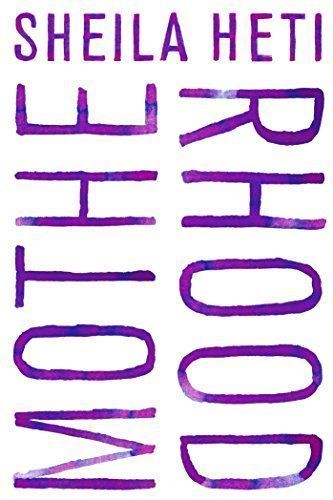
Motherhood A Novel
In her late thirties, when her friends are asking when they will become mothers, the narrator of Heti's novel considers whether she will do so at all. In a narrative spanning several years, casting among the influence of her peers, partner, and her duties to her forbearers, she struggles to make a wise and moral choice
Reviews
Jana Barkova@jana_bark
biddy@silksparrow
l🌀@llaetitia
Eva Ströberg@cphbirdlady
Dora Tominic@dorkele
Jacob Hopkins@jhopkins
Cassie B@partialtruth
Meghan Navoy@megnavoy
Jeannette Ordas@kickpleat
aem@anaees
Judith Van Laere@jvl
Shelby Doherty@dohertys17
Donald@riversofeurope
Louise @louise
Jade Flynn@jadeflynn
Ana Couto@inquisitivebookworm
Gemma Copeland@gemcopeland
Jovanna Briscoe @jobrisk
Tabea Lüth@tabealt
taylor miles hopkins@bibette
Juliana@soundly
Anastasiia@sia_reads
Mari-Claire Parrin@mariclaire
Samantha Plakun@samanthaplakun
Highlights
l🌀@llaetitia
taylor miles hopkins@bibette
Page 270
taylor miles hopkins@bibette
Page 258
taylor miles hopkins@bibette
Page 254
taylor miles hopkins@bibette
Page 169
taylor miles hopkins@bibette
Page 177
taylor miles hopkins@bibette
Page 182
taylor miles hopkins@bibette
Page 192
taylor miles hopkins@bibette
Page 194
taylor miles hopkins@bibette
Page 194
taylor miles hopkins@bibette
Page 200
taylor miles hopkins@bibette
Page 229
taylor miles hopkins@bibette
Page 184
taylor miles hopkins@bibette
Page 158
taylor miles hopkins@bibette
Page 153
taylor miles hopkins@bibette
Page 131
taylor miles hopkins@bibette
Page 120
taylor miles hopkins@bibette
Page 119
taylor miles hopkins@bibette
Page 95
taylor miles hopkins@bibette
Page 95
taylor miles hopkins@bibette
Page 84
taylor miles hopkins@bibette
Page 83
taylor miles hopkins@bibette
Page 43
taylor miles hopkins@bibette
Page 41